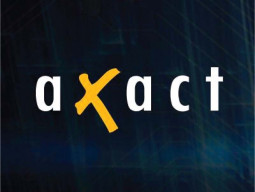
Following the report claiming Axact ran a fake education empire that involved paid actors promoting fictitious universities and even fake State Department authentication certifications bearing the signature of John Kerry, people stormed social networking sites reacting to the news.
Read: Fake diplomas, real cash: Pakistani company Axact reaps millions
Brandwatch, a technology company that tracks discussions on social media said more than 6,500 tweets were sent out using the hashtag #Axact on Monday with eight times as many negative mentions as positive.
In the midst of the social media frenzy, founder of Pak Tea House, Raza Rumi, said that his blog had been served a legal notice threatening to sue for defamation if he did not “immediately take down the links within 24 hours from receipt of this notice” to tweets mocking the company.
Rather unprecedented that an online outlet @paktea is charged with defamation while it is only presenting reactions on twitter! #bullying
— Raza Ahmad Rumi (@Razarumi) May 18, 2015
The move came hours after Pak Tea House blogger, Malik Omaid posted Twitter reactions comprising comments, jokes and memes on the report.
@Razarumi @paktea @nytimes @nighatdad @jhaque_ @shobz Says a lot for their values that they are gunning for a small independent blog. #Shame
— beena sarwar (@beenasarwar) May 18, 2015
.@TheThinkingBird In that case they should sue @nytimes and not @paktea - the latter just posted tweets/reactions.Totally legit. #freespeech
— Raza Ahmad Rumi (@Razarumi) May 18, 2015
In the letter, the lawyers demanded that Pak Tea House’s editor issue “an unconditional apology and retraction for your illegal, defamatory, slanderous and malicious actions.”
On Monday, the NYT report, which quoted former employees and analysed more than 370 websites of fake universities, accreditation bodies and other purported institutions, sparked a wave of criticism on social media even as the company denied wrongdoing.
A message on Axact’s website declared the story "baseless, substandard, maligning, defamatory, and based on false accusations" and added it would sue the New York Times.
However, Brandwatch reported that the company’s response to the report only had a handful of tweets under the hashtag #Axactresponse, but those messages were quickly retweeted more than a thousand times.
Some of those responses suggested that the report was part of an even wider conspiracy against Pakistan.
Interestingly, the link of the story on American business magazine Forbes was also taken down. The reason for the removal could not be ascertained.
Can someone @Forbes confirm if they have received a legal notice? https://t.co/1jR6bcgiUy
— Raza Ahmad Rumi (@Razarumi) May 18, 2015
According to the report, Axact created a series of fake websites involving "professors" and students who were in fact paid actors.
The "university" websites mainly route their traffic through servers run by companies registered in Cyprus and Latvia, and employees would plant fictitious reports about Axact universities on CNN iReport, a website for citizen journalism.
Read: Chaudhry Nisar orders inquiry into Axact scandal
The article cited clients from the US, Britain and the United Arab Emirates who had paid sums ranging from thousands to hundreds of thousands of dollars for their degrees -- with some believing the universities were real and they would soon receive coursework.
However, undeterred Rumi continued to mock the software company.
So far we are not removing it from @paktea - #Axact should give me a Phd from Columbiana University to get it done. https://t.co/EQTKl22eAJ
— Raza Ahmad Rumi (@Razarumi) May 18, 2015
This article originally appeared on the New York Times








































COMMENTS (15)
Comments are moderated and generally will be posted if they are on-topic and not abusive.
For more information, please see our Comments FAQ